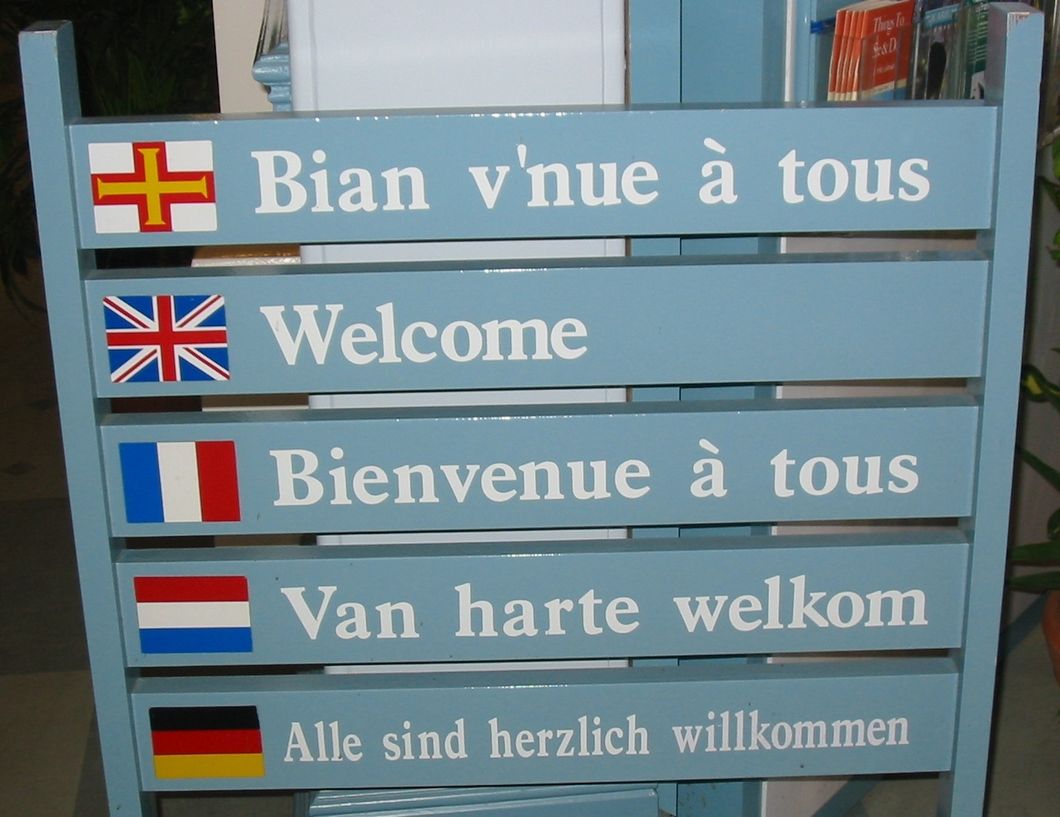How Does Bilingualism Work on the Mind and Career?
Credits to my friend, Alisa, for partaking in this research. Extensive research on what bilingualism can do to our minds and career; told from two bilingual peoples' perspective.
People communicate with each other on a daily basis, whether it be to a neighbor or a person living halfway around the earth. In a continuously globalizing world, it is becoming increasingly vital to know more than one language to effectively communicate with others. Being bilingual not only has an effect on a person's career but on their cognitive thinking as well. There are numerous factors that attribute to how a person learns another language and the other intellectual benefits that arise from studying one. The skills that a person learns at a young age regarding language and its positive effects are what can end up separating one candidate from another for the same job later in life.
Advantages
Being bilingual around the world has its benefits as well as its disadvantages. Children who are bilingual speakers within the household have better cognitive thinking than their monolingual peers. In a bilingual child, there are two languages working at the same time in their brain; this allows the child to be able to multitask in their daily life, including academic work. They are capable to learn math faster and easier than their monolingual peers and memorize sequences far more superior than others in their age group.
Bonfiglio describes the effect of bilingualism to allow the child to have a better attention span, as well as being able to multitask far more superior than their monolingual counterparts. The constant switching of languages back and forth allows the brain to become stronger in cognitive thinking, which is why the child is able to switch between languages without contemplating what to do next. With these improved cognitive skills a bilingual person, whether it be a child or an adult, has an advantage with academics and paying attention to detail within the environment.
According to Gaia, there have been many tests and studies done between a bilingual person and their monolingual peer that explicitly shows that bilinguals exceed in cognitive and social tasks, which include the knack in verbal and nonverbal conversations, as well as being able to read people faster and accurately.
Disadvantages
There are many advantages for bilingualism on cognitive thinking, however, there are attributes to being bilingual that can slow down language use and disrupt the mind to configure basic sentences. Having a closer look at the brain and bilingualism, a person who knows more than one language has a difficulty in language expansion, mainly vocabulary. Doctor Olson talks about the other perspective of bilingualism in a person, describing the detriment of bilingualism to lower vocabulary in either language compared to monolinguals, experts in the one language. This shows that the mind can be limited to certain aspects of knowledge when it is learning to switch between two languages.
This includes the fact that bilinguals pass between the two languages to fit the appropriate
Benefits For Your Career
The cognitive skills acquired from mastering another language are numerous, and they can extend to a person's ability to find a profession. Finding a job can prove to be challenging, especially when the competition is becoming more and more competitive. One of the ways that can make one candidate stand out from the others is their fluency in multiple languages. This trait is sought after in many specialties, mainly due to its adaptability to any situation. The global market, in particular, is one of the many professions that have the standard of bilingualism.
Knowing multiple languages is effective in the professional setting in business because it can enable a person to have more customers and clients that are from a different country who do not primarily speak English. In the article "Bilingualism and Communicative Benefits" by Gabszewicz, it is stated that the communicative benefit of an individual increase with the number of those with which they can communicate using a common language. The ability to speak more than one language has proven to be useful time and time again and will only continue to be more needed as businesses expand globally.
Aside from potential job candidates having higher chances of getting certain positions due to their knowledge of a second language the employers can also benefit. One of the benefits of a more globalized economy is that it's easier for entrepreneurs to start their own businesses.
Some start companies centered around making communication between people who do not speak the others' native tongue easier, like Jan Koum, co-founder of WhatsApp. He is bilingual himself, speaking both English and Russian fluently. His messaging app has more than 1 billion users and displays the new way that people communicate with each other. Jan Koum was able to turn the fact that he spoke multiple languages into an effective business model that ended up being very successful.
Drawbacks In Your Career
As useful as being bilingual might be in the professional setting, people argue that there are some definite drawbacks to having the ability to speak multiple languages be a critical part of some careers. There are growing expectations for candidates to be able to speak at least another language, and in some cases even necessary. This can cause some people to lie about their linguistic skills and say that they are proficient in a language that they are not. This act is normally seen on resumes when people want to get an interview.
Unfortunately, this type of behavior is common in many applicants, about 75 percent were caught by HR managers lying about at least one of their qualifications according to a survey published by CareerBuilder. These fibs include their experience and fluency in other languages. Due to these events, a person can sometimes receive a job that another person was better equipped and more qualified to handle. This is one reason out of many for the spike in job competition that has been seen in the past decade.
With the constantly growing expectations and qualifications of candidates, things like bilingualism are falsely stated to try and get an edge on the competition. Regardless of whether bilingualism is viewed as a positive or negative, it has a definite effect on the future of the world and the way people communicate.




 Kathrin Kasperlik
Kathrin Kasperlik Kathrin Kasperlik
Kathrin Kasperlik Kathrin Kasperlik
Kathrin Kasperlik Kathrin Kasperlik
Kathrin Kasperlik Kathrin Kasperlik
Kathrin Kasperlik Kathrin Kasperlik
Kathrin Kasperlik Kathrin Kasperlik
Kathrin Kasperlik Kathrin Kasperlik
Kathrin Kasperlik
 Kathrin Kasperlik
Kathrin Kasperlik Kathrin Kasperlik
Kathrin Kasperlik
 Making tortillas in Magdalena, Guatemala (2018)Instagram: @brittharms
Making tortillas in Magdalena, Guatemala (2018)Instagram: @brittharms Basque Country, Spain (2016)Instagram: @brittharms
Basque Country, Spain (2016)Instagram: @brittharms































